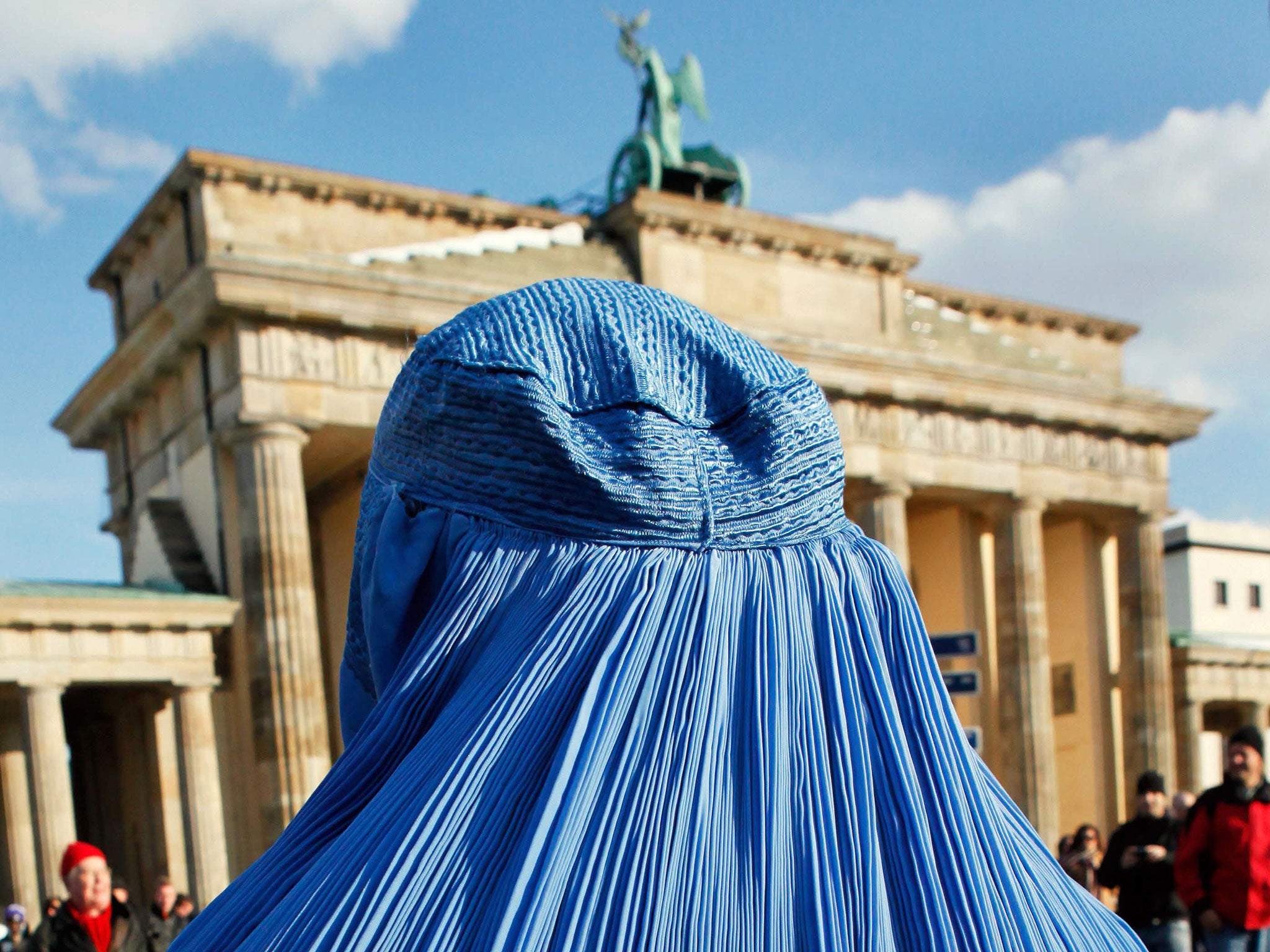German parliament votes in favour of partial burqa ban
Interior minister says Germany will make 'boundaries of our tolerance' clear

Your support helps us to tell the story
From reproductive rights to climate change to Big Tech, The Independent is on the ground when the story is developing. Whether it's investigating the financials of Elon Musk's pro-Trump PAC or producing our latest documentary, 'The A Word', which shines a light on the American women fighting for reproductive rights, we know how important it is to parse out the facts from the messaging.
At such a critical moment in US history, we need reporters on the ground. Your donation allows us to keep sending journalists to speak to both sides of the story.
The Independent is trusted by Americans across the entire political spectrum. And unlike many other quality news outlets, we choose not to lock Americans out of our reporting and analysis with paywalls. We believe quality journalism should be available to everyone, paid for by those who can afford it.
Your support makes all the difference.The German parliament has supported a draft law banning women working in the civil service, judiciary and military from wearing full-face Islamic veils.
Burqas and niqabs will be prohibited in selected professions as part of the legislation, which will not come into effect until being approved by the Bundesrat state parliament.
Thomas de Maiziere, the German interior minister, argued that the ban was compatible with integration as debate continues over the arrival of more than a million asylum seekers in the country.
“Integration also means that we should make clear and impart our values and where the boundaries of our tolerance towards other cultures lie,” he said.
“The draft law we have agreed on makes an important contribution to that.”
Some right-wing politicians have called for a full ban on the burqa in public, which has been imposed in France and Belgium, but Mr de Maiziere said the move would be incompatible with Germany’s constitution.
The new law will require government employees to show their faces, as well as giving authorities the power to check women’s identities in elections.
It was opposed by politicians from the left-wing Die Linke and Die Grünen parties, who dismissed the legislation as a “purely symbolic policy” pandering to the right-wing Alternative für Deutschland (AfD) ahead of September’s elections.
Critics argued that burqa-wearing soldiers and officials do not actually exist, making the new rules redundant, and said they will worsen tensions.
Angela Merkel announced her support for the move in December, saying full-face veils were “not acceptable in Germany” and calling them to be banned “wherever it is legally possible”.
She is bidding for her fourth term as Chancellor, battling a rise in support for the anti-immigration AfD, which has blamed her decision to open Germany’s borders to refugees in 2015 for a series of Isis-inspired terror attacks.
Concerns about integration have also risen following the arrival of more than a million asylum seekers, who are mainly from Syria and other countries in the Middle East.
The state of Bavaria brought in its own burqa ban in February, prohibiting full-face Islamic veils in schools, polling stations, universities and government offices.
Joachim Herrman, Bavaria’s interior minister, said the burqa and niqab were not compatible with Germany’s “communication culture” and were needed to maintain government neutrality.
“A culture of open communication with one another is part of the free and democratic understanding of Christian values,” he added.
“Communication happens not only via language but also via looks, facial expressions and gestures.
“It forms the foundation for our interactions with each other and is the basis of our free and democratic order.”
A poll last year showed that 81 per cent of Germans supported a ban on the burqa within public institutions.
Dutch MPs voted for a similar prohibition in the Netherlands last year, covering public transport, education, healthcare and government buildings and punishing any infractions with fines.
Support for bans on full-face veils has been growing across Europe since France became the first country to implement such a law in 2011, followed by countries including Belgium and Bulgaria, with partial bans being imposed in Austria and parts of Spain, Italy and Switzerland.
Join our commenting forum
Join thought-provoking conversations, follow other Independent readers and see their replies
Comments